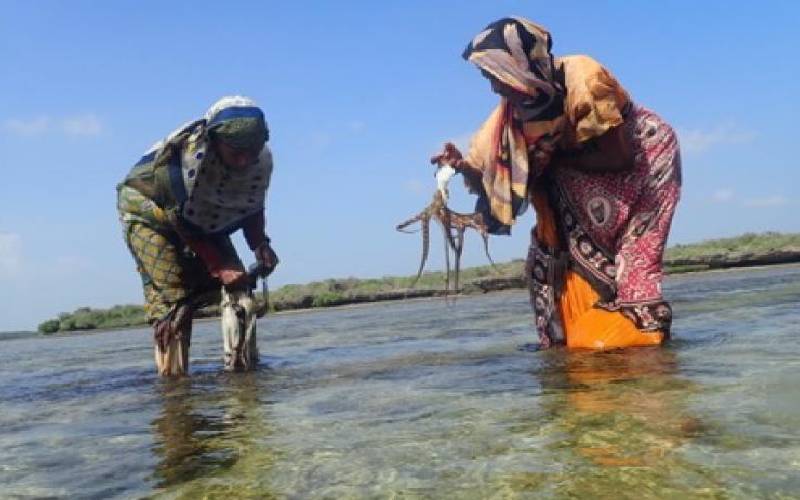×
The Standard e-Paper
Home To Bold Columnists

The women wait until 11am before they wade through the shallow waters to the mangroves and identify areas that need replanting. [Photo, Standard]
Amina Ahmed Mohammed has watched men prepare fishing gear and take to the waters in Lamu to fend for their families since she was a child.